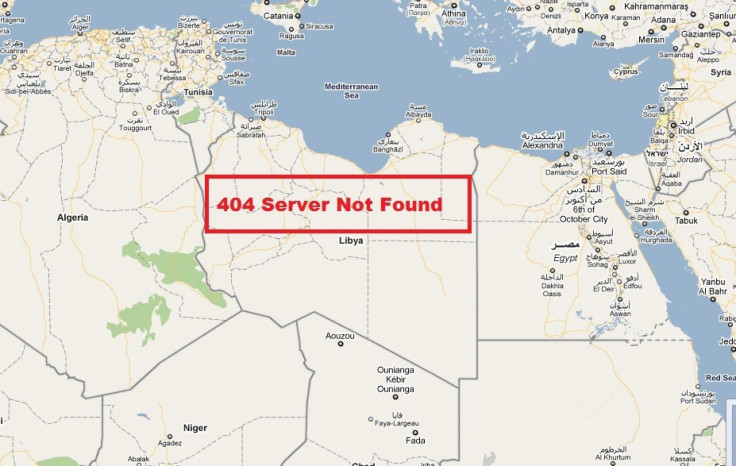Libya Blocks Internet Traffic

After slowly returning to the Internet, Libya has gone again.
At about 7 a.m. Eastern Time on Thursday Internet traffic coming in and out of Libya dropped to nearly zero, where it remains, according to Google's Transparency Report.
Libya had previously lost much of its connectivity on Feb. 18. The country's Internet activity returned at about 1 a.m. Eastern time after being out for about seven hours. Initially some analyst s thought it might be the Libyan government attempting a dry run of cutting off the Internet and other communications the way the Egyptian government did in January.
But James Cowie, chief technology officer of Renesys, an information technology consultancy, said this time it is different from the case in Egypt, or even the previous service outages. It's like a post-apocalyptic scenario where the roads are there, there just isn't any traffic, he said.
In Egypt, the government simply told the Internet service providers to shut the servers down. Technically, it was not very sophisticated. If a computer from another country tried to ping a server in Egypt, there was simply no answer.
This time, the servers in Libya are answering, in the sense that the route is clear and open. But there is no traffic. If one were to try and send a data packet from Libya to the U.S., for example, the server in Libya would send it to a black hole route, Cowie said. That means it would be held in place. The sender might never know what happened.
Users of services such as YouTube and Twitter would see a problem because neither is hosted in Libya, so the moment one required a response from the site it would be clear that something was amiss. In one sense, what the Libyan telecoms operator is doing is not dissimilar to the throttling of traffic that happens on any network when users exceed their data limits. The data is either slowed down or the subscriber gets charged more money. In this case the throttling was simply set at zero.
Every time I think that someone has a way to shut down the internet they come up with a new way, Cowie said.
As of Friday morning - late afternoon in Libya - the Internet has yet to be reconnected to that country.
The unrest in Egypt and other parts of the Arab world has focused attention on the Internet as an arena of conflict, as new communications technologies, including mobile phones and satellite television, have become more ubiquitous in the developing world.
© Copyright IBTimes 2024. All rights reserved.




















